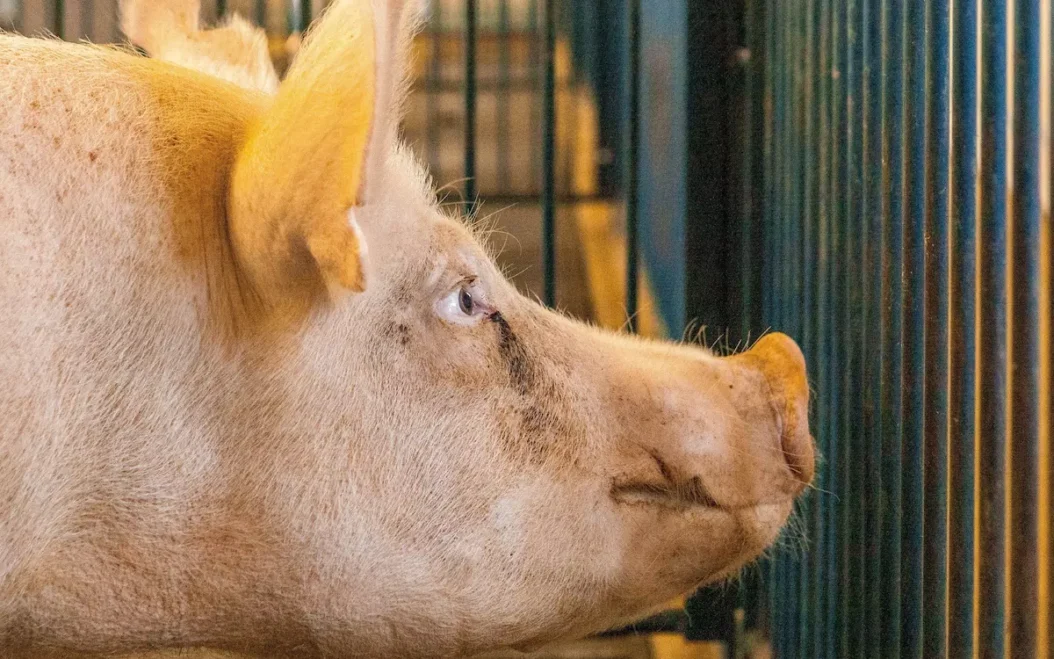Animal wellness groups declare that China’s EATS Act, dubbed the CHEATS Act in its modified Form, is terrible policy for the United States and grounded on a series of false assumptions
Washington, D.C. — Today, Wayne Pacelle reacted to the inclusion of China’s EATS Act in the draft Farm bill set for a House committee mark-up next week.
Pacelle is president of Animal Wellness Action and the Center for a Humane Economy and was a key architect of both Proposition 12, Question 3, and all preceding and winning statewide farm animal welfare ballot measures. Those ballot measures bear no resemblance to orthodox animal rights measures; they are basic animal-care measures that simply give animals a small amount of space to move. The ballot measures outlawed cages and crates that immobilized animals for months and years at a time.
“The leadership of the Agriculture Committee has sounded that it wants a bipartisan bill, but it then advances China’s EATS Act that has from day one been a partisan bill with just a very narrow slice of Republicans actively backing it,” said Pacelle. “The only thing bipartisan about that bill is the opposition to it.”
The EATS Act is an attempt to subvert state elections just months after a conservative U.S. Supreme Court upheld Prop 12 and similar laws as a proper and constitutional exercise of state authority.

The CHEATS Act mainly benefits China, which already controls 26% of U.S. pork sales (after America’s biggest global rival acquired Smithfield Foods thanks to a $5 billion loan to the Wuhan Group from the Bank of China). China could bring its 25-story-high pig-factory skyscrapers to America if key state laws are undone by Congress.
“Not a single farmer in Iowa, Kansas, or any other state will need to invest in new housing systems because the pork industry already has capacity to accommodate demand for pork from gestation-crate-free housing systems in California and Massachusetts,” added Pacelle. “The argument that Iowa pork producers have to change their ways because of Prop 12 has been 100 percent phony from the start.”
Key points include:
- A diversifying pig industry has been dismantling gestation crates over two decades (starting with a ballot measure in Florida that banned gestation crates) and now 40% of sows live in group housing. This far exceeds the 6% market share of gestation-crate-free pork production needed for California and Massachusetts.
- Prop 12 and Q3 exempt processed, frozen, and combined pork products, accounting for 42% of pork sales to these states.
- Including domestic and foreign markets, 187 of 189 markets (48 states and 139 pork-importing nations) remain completely available to conventional pork from animals kept in extreme confinement. There are no laws mandating gestation crates in 94% of current markets accessed by the U.S. pork industry.
Thousands of small and larger pig producers — including The Clemons Food Group (#5 producer in the U.S.) and Niman Ranch (700 farmers in that single cooperative — oppose the EATS Act. Many pig producers developed more extensive housing systems to supply California and Massachusetts when these two measures passed years ago (each had multi-year phase-ins). There are 1,266 producers already supplying California’s market and they are depending on continuing implementation of Prop 12. Producers from Iowa to Ohio to Pennsylvania are opposed to EATS.
The American public strongly opposes gestation crates. Eleven states ban the crates and more than 60 of the biggest names in American food retail — from McDonald’s to Costco to Safeway — representing 90% of food sales in the United States have issued public pronouncements opposing the use of gestation crates.
There have been three House letters opposing the measure, with 200 lawmakers stating their opposition to the EATS Act and its derivatives, including 26 Republicans: a bipartisan letter with 171 House signers in August 2023, a Republican letter with 16 House signers in October 2023 and a Republican letter with 10 House signers in March 2024.

